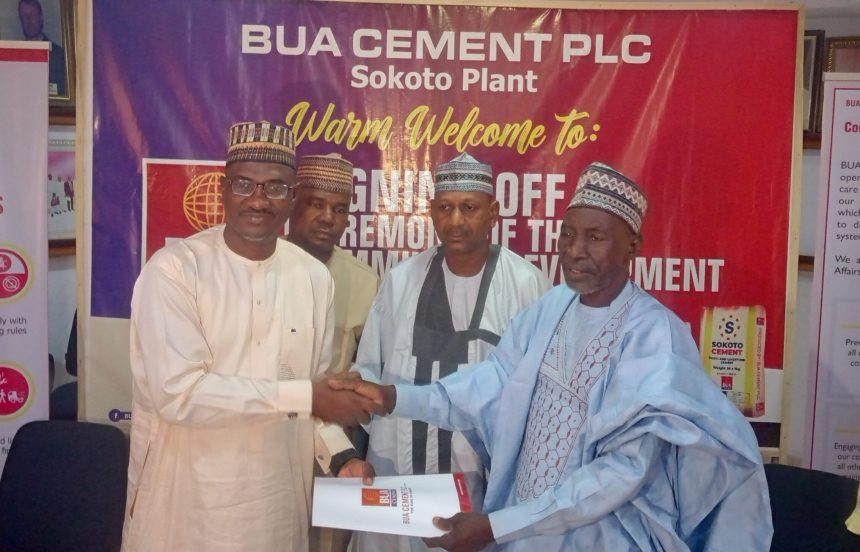In a move aimed at deepening cooperation with its surrounding communities, BUA Cement has finalized a long-term pact outlining its social investment blueprint from 2025 to 2030.
The official signing, held in the company’s boardroom, brought together executives from BUA, key state officials, and local leaders signaling a unified front in promoting shared progress.
Representing the company’s leadership, Plant Director Bashar Aminu described the agreement as more than just a document, calling it “a promise anchored in action” that ensures community interests remain front and center.
Echoing this commitment, Suleiman Sada, Assistant Director of Administration and Corporate Affairs, stressed that the deal reflects the company’s intention to directly enhance the quality of life across its host areas. “Every clause speaks to real needs, from healthcare to education and employment and we’re ready to deliver,” he said.
Originally slated for 2023, the agreement was postponed to allow the current Sokoto State administration to play a more active role in shaping its direction.

The newly signed accord touches on nine critical development areas, including annual supply of medications to 14 hospitals, scholarships for underprivileged students, construction of clean water facilities, skills training for local youth, road improvements, support for security initiatives, targeted job creation, and donations of cement for grassroots infrastructure projects.
Sokoto State’s Commissioner for Solid Minerals, Yusuf Machido, appladed the initiative, highlighting BUA’s consistent contribution to community upliftment. “What’s happening here should be a model for others,” he said.
Justice Commissioner Nasir Binji also endorsed the partnership, noting that many BUA executives hail from the region, making it unlikely the company would walk away from its obligations. He further advised the adoption of responsible environmental practices such as land restoration post-mining.
Local government chairman Umar Ahmed Dundaye welcomed the agreement and emphasized the importance of collaborating with local leaders to ensure fair access to jobs and development benefits.
Traditional rulers present including Alhaji Samaila Abdulkadir Mijei, Aliyu Hassan Liman, and Alhaji Melatu Gumbi described the agreement as a hopeful step toward sustainable progress, calling for continued transparency and dialogue.
The five-year pact is seen as a blueprint for how businesses can partner meaningfully with their host environments not just for profit, but for people.



